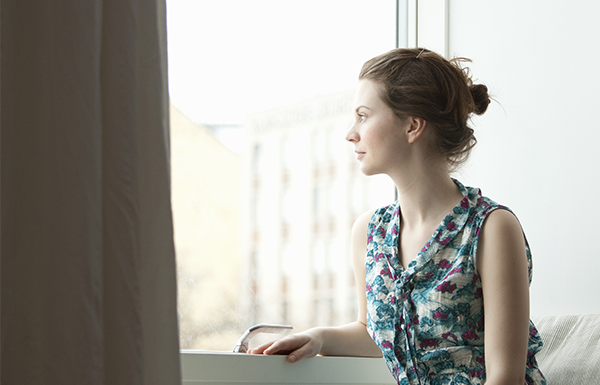Seasonal sadness remedies
Nov 5, 2021

The changing of the seasons can bring on more than just a shift in weather — the seasons can also affect our mood. Seasonal affective disorder (SAD) is a specific type of depression brought on by these seasonal transitions.
The most common type of SAD occurs in the winter. Symptoms include:
- Tiredness or fatigue
- Loss of interest in social activities
- Low energy
- Weight gain or changes in appetite
- Changes in concentration
- Feeling like your body is physically heavier and hard to move
Natural ways to fight SAD
There are some natural ways to combat SAD. Recognizing the signs and being proactive about getting help is a huge first step. Here are some ways to help ease seasonal sadness:
Get some sun: Don’t let the daylight dwindle without getting outside to soak up the few rays you can. It gets dark early. Make time to go outside during peak sunshine hours (around noon) and take a quick walk to wake up your senses. Too cold? Throw on your winter clothing and get outside, even if it’s just for a little bit.
Vitamin D: While you’ll get some vitamin D from the sun, it might not be enough during these darker winter months. You may want to consider adding a supplement. Vitamin D is vital for lots of things, including how your body processes calcium and maintains bone structure. When your natural functions are out of sync, you may feel tired or run down.
Activity: Working out is a great way to combat SAD. Even if you can’t hit the gym because of COVID-19, try some at-home activities — and that doesn’t have to look like traditional workouts. Turn on some tunes for a dance party or race your kids around the yard or house. “A dance party in the kitchen or racing your kids in the driveway can be helpful as well,” says Colleen Freeman, a licensed therapist at Adventist Health Primary Care – Clackamas office. “You may even want to try an obstacle course around the house.” Activity causes your body to release endorphins, which help make you happy.
Quiet time: Take some time for yourself. Relax and focus on the positive. Some find it helpful to unplug for a little bit and stay away from social media and electronic devices. Try doing something you find calming to recharge your mind and spirit. Journaling three thing
Keep an eye on what you’re eating: When we’re sad and/or tired, it’s tempting to indulge in foods that are comforting but don’t have a lot of nutritional value. That’s exactly the opposite of what your body needs! Make nutritious meals that will feed your body and your mood.
Turn up the tunes: Music can be a powerful tool in shaping your mood. “Tap into positive music from your past or find upbeat songs that make you feel good,” Freeman suggests. “Music can bring back positive memories, help us get out of our heads for a moment and bring in some positive emotions.”
Be social even while socially distant: Even if it takes energy you feel you don’t have, try to connect with other people. Even when social distancing is required, you can ask co-workers to space out and take a midday walk in the fresh air. Cold, dark nights are a great time to host friends for online board games or movie watch parties. Plan a FaceTime or Zoom virtual dinner or happy hour so you can share laughter, stories and, most of all, just each other’s company.
Consult your primary care provider: If you’re feeling depressed and nothing is working to lift you from the fog, it’s time to consult your doctor. Sometimes we need some extra guidance on how to best care for our mind, body and spirit. That’s what your primary care provider is for.
Light therapy: Your provider may want you to try light therapy, where special lights simulate sun exposure or can even give the effect of dawn breaking right in your bedroom. These helpful devices are best used under your provider’s guidance so you get the light you need without disrupting your sleep cycle.
A natural seasonal shift
It’s natural to feel the shift of seasons. Being a little out of sorts could be part of that transition.
Seasonal affective disorder doesn’t only present itself in the winter, but it’s the most common time to feel the effects due to the drastic change in temperature and reduced amount of daylight. Be proactive about your health and take steps to make yourself feel better.
If none of these remedies work, schedule an appointment with your primary care provider for more guidance. Adventist Health Portland’s many primary care clinics also offerin-house counselorsto provide mental health support to yourprimary care.
Remember: You don’t have to be SAD alone.


